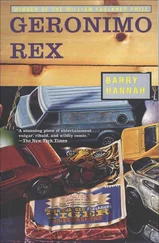Barry Hannah - Airships
Здесь есть возможность читать онлайн «Barry Hannah - Airships» весь текст электронной книги совершенно бесплатно (целиком полную версию без сокращений). В некоторых случаях можно слушать аудио, скачать через торрент в формате fb2 и присутствует краткое содержание. Год выпуска: 2007, Издательство: Grove Press, Жанр: Современная проза, на английском языке. Описание произведения, (предисловие) а так же отзывы посетителей доступны на портале библиотеки ЛибКат.
- Название:Airships
- Автор:
- Издательство:Grove Press
- Жанр:
- Год:2007
- ISBN:нет данных
- Рейтинг книги:3 / 5. Голосов: 1
-
Избранное:Добавить в избранное
- Отзывы:
-
Ваша оценка:
- 60
- 1
- 2
- 3
- 4
- 5
Airships: краткое содержание, описание и аннотация
Предлагаем к чтению аннотацию, описание, краткое содержание или предисловие (зависит от того, что написал сам автор книги «Airships»). Если вы не нашли необходимую информацию о книге — напишите в комментариях, мы постараемся отыскать её.
Airships — читать онлайн бесплатно полную книгу (весь текст) целиком
Ниже представлен текст книги, разбитый по страницам. Система сохранения места последней прочитанной страницы, позволяет с удобством читать онлайн бесплатно книгу «Airships», без необходимости каждый раз заново искать на чём Вы остановились. Поставьте закладку, и сможете в любой момент перейти на страницу, на которой закончили чтение.
Интервал:
Закладка:
The reason I sent this by James is because I thought if it was right from his hand you would see that it was not just a nasty slipping-around thing between us but a thing of the heart. His stroke has left him blind in one eye and without sure control of his voice. But he loves you. And he loves me. I believe God is with us too. Please take us all together and let’s smile again. I am crying as I write this. But maybe that’s not fair to mention that. James has mentioned taking us all, your father included, on a vacation to Padre Island in Texas, him paying all the expenses. Can’t you please say yes and make everything happy?
Love,
Mother
“It was his fingers pinching me,” whined French. “He pinched me all the time when he was coaching me.”
Levaster said, “And if he hadn’t coached you, you wouldn’t be anything at all, would you? You’d be selling storm fencing in Vicksburg, wouldn’t you? You’d never have pumped that snatch or had the swimming pool.”
Back at his clinic, Levaster slept on a plastic couch in the waiting room. The nurse woke him up. He was so lonely and horny that he proposed to her, though he’d never had a clear picture of her face. Months ago he’d called her into his office. He’d had an erection for four days without rest.
“Can you make anything of this, Louise? Get the Merck Manual . Severe hardship even to walk.” She had been charming. But when he moved to her leg, clasping on it like a spaniel on the hot, she denied him, and he had since considered her a woman of principle.
She accepted his proposal. They married. Her parents, strong Methodists living somewhere out in New Mexico, appeared at the wedding. They stood in a corner, leaning inward like a pair of sculling oars. Levaster’s mother came too, talking about the weather and her new shoes. Someone mistook her for nothing in one of the chairs and sat on her lap. French was best man. Cecilia was there, a dress of lime sherbet and titties, black hair laid back with gemlike roses at the temples. She made Levaster’s bride look like something dumped out of a ship, a swathed burial at sea. Cecilia’s beauty was unfair to all women. Furthermore, Levaster himself, compared to French (nugget-cheeked in a tux), was no beau of the ball. He was balding, waxen, all sweat, a small man with bad posture to boot.
Levaster expected to lean on the tough inner goodness of his bride, Louise. He wanted his life bathed and rectified. They resumed their life as doctor and nurse at the alley clinic, where Levaster undercharged the bums, winos, hustlers, hookers, artists and the occasional wayward debutante, becoming something of an expert on pneumonia, herpes, potassium famine and other diseases of the street. He leaned on the tough inner goodness of Louise, leaning and leaning, prone, supine, baby-opossum position. Levaster played tennis, he swam in the Edwards’ pool, he stuck to beer and wine. In the last whole surge of his life, he won a set from French at the Metairie Club. This act caused Dr. Levaster a hernia and a frightful depletion of something untold in his cells, the rare it of life, the balm that washes and assures the brain happiness is around the corner. Levaster lost this sense for three months. He became a creature of the barbarous moment; he had lost patience. Now he cursed his patients and treated them as malingering clutter. He drank straight from a flask of rye laced with cocaine, swearing to the sick about the abominations they had wreaked on themselves. At nights Levaster wore an oversized black sombrero and forced Louise into awkward and nameless desecrations. And when they were over, he called her an idiot, a puppet. Then one morning the hopeful clarity of the mind returned to him. He believed again in sun and grass and the affable complicity of the human race. But where was his wife? He wanted to lean on her inner goodness some more. Her plain face, her fine muscular pale legs, where were they? Louise was gone. She had typed a note. “One more week of this and you’d have taken us to the bottom of hell. I used to be a weak but good person. Now I am strong and evil. I hope you’re satisfied. Good-bye.”
At the clinic, his patients were afraid of him. The free-loaders and gutter cowboys shuddered. What will it be, Doc? “French. It was French Edward who. . took it away from me. It cost me. I suppose I wanted to defeat beauty, the outrage of the natural, the glibness of the God-favored. All in that one set of tennis. Ladies and gentlemen, the physician has been sick and he apologizes.” He coughed, dry in the throat. “It cost me my wife, but I am open for business.” They swarmed him with the astounded love of sinners for a fallen angel. Levaster was nursed by whores. A rummy with a crutch fetched him coffee. Something, someone, in a sputum-colored blanket, functioned as receptionist.
At last he was home. He lived in a room of the clinic. On his thirty-fourth birthday, they almost killed him with a party and congratulations. The Edwards came. Early in the morning French found Levaster gasping over his fifth Cuban cigar on the roof of the clinic. The sky over New Orleans was a glorious blank pink.
“We’re getting older, Baby.”
“You’re still all right, French. You had all the moves at Forest Hills. Some bad luck, three bad calls. But still the crowd’s darling. You could’ve beat Jesus at Wimbledon.”
“I always liked to play better than to win,” said French.
“I always liked to win better than to play,” said Levaster.
“But, Baby, I never played. First it was my father, then Word. I don’t know what kind of player I would be like if I truly played when I play.”
“But you smile when you play.”
“I love the game, on theory. And I admire myself.”
“You fool a lot of people. We thought you were happy.”
“I am. I feel like I’m doing something nearly as well as it could ever be done. But it’s not play. It’s slavery.”
“A slave to your talent.”
“And to the idea of tennis. But, Baby, when I die I don’t want my last thought to be a tennis court. You’ve got people you’ve cured of disease to think about. They’re down there giving you a party. Here I am, thirty-two.”
“I’m thirty-four. So what?”
“I want you to tell me, give me something to think about. You’ve done it before, but I want something big.” French pointed to the sky.
“I won’t do that. Don’t you understand that the main reason you’re a star is the perfect mental desert you’re able to maintain between your ears for hours and hours? You memorize the court and the memory sinks straight to your muscles, because there is nothing else in there to cloud the vision.”
“Are you calling me stupid?”
“No. But a wild psychic desert. I’m sure it works for artists as well as jocks.”
“You mean,” said French, “I can’t have a thought?”
“You could have one, but it wouldn’t live for very long. Like most athletes, you’ll go straight from glory to senility with no interlude of thought. I love you,” Levaster said.
French said, “I love you, Baby.”
Dr. Levaster could no longer bear the flood of respect and affection spilling from the growing horde at the clinic. The Times-Picayune had an article about his work among the down-and-out. It was as if Levaster had to eat a tremendous barge of candy every day. The affection and esteem bore hard on a man convinced he was worthless. He had a hundred thousand in the bank. No longer could he resist. He bought a Lincoln demonstrator, shut the clinic, and drove to New York, carrying the double-barreled.410 shotgun/pistol with cherrywood handle paid to him in lieu of fee. He sifted into Elaine’s, drunk, Southern and insulting, but was ignored. By the time Levaster had been directed to a sullen playwright, some target frailer than he, on whom he could pour the black beaker of his hatred of art, the movement of the crowd would change and Levaster would be swept away to a group of new enemies. Idlers, armchairers, martini wags, curators of the great empty museums (themselves), he called them. Not one of them could hold a candle to Willum Faulkner, Levaster shouted, having never read a page of the man. He drove his Lincoln everywhere, reveling in the hate and avarice of the city, disappearing into it with a shout of ecstasy.
Читать дальшеИнтервал:
Закладка:
Похожие книги на «Airships»
Представляем Вашему вниманию похожие книги на «Airships» списком для выбора. Мы отобрали схожую по названию и смыслу литературу в надежде предоставить читателям больше вариантов отыскать новые, интересные, ещё непрочитанные произведения.
Обсуждение, отзывы о книге «Airships» и просто собственные мнения читателей. Оставьте ваши комментарии, напишите, что Вы думаете о произведении, его смысле или главных героях. Укажите что конкретно понравилось, а что нет, и почему Вы так считаете.












